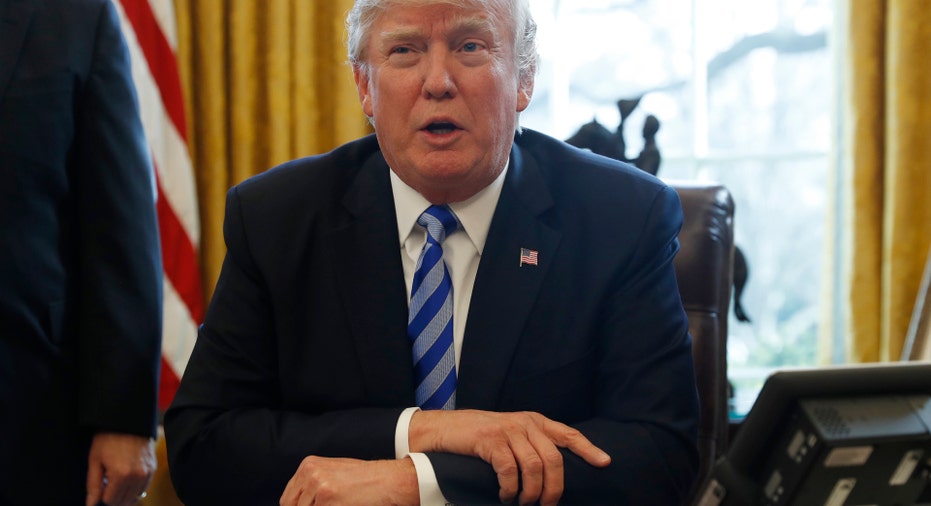White House: More Obama Regulation Rollbacks Coming

U.S. President Donald Trump hopes to sign "several more" measures into law before the end of April to roll back Obama-era regulations under the time-limited Congressional Review Act (CRA), a White House official said on Wednesday.
Aggressive use by Republicans in Congress of the obscure CRA has provided them with several small-scale legislative victories at a time when they have struggled with major legislation.
Highlighting these, White House Director of Legislative Affairs Marc Short said on a conference call with reporters: "There are several more that we hope to sign before this window closes on April 28."
The law has a short time span for introducing resolutions of disapproval: 60 legislative days after a regulation is finalized, meaning it can only be used shortly after a president of an opposing party leaves office.
Since Trump, a Republican, took office on Jan. 20, House of Representatives Republican Leader Kevin McCarthy has led Congress in churning out 13 resolutions killing regulations by Democratic President Barack Obama, most of concern to business interests.
Trump, who vowed in the 2016 election campaign to slash regulations, has signed 11 resolutions under the CRA, rolling back the rules they targeted and barring agencies from writing "substantially similar" measures in the future.
On Monday, Trump signed a CRA resolution repealing broadband privacy protections. He has also signed resolutions killing rules meant to expand background checks for mentally ill gun purchasers, change public school assessments, and reduce coal waste runoff into streams.
Democrats have assailed the reversals as harmful to the environment, education and checks on Wall Street, with many saying the measures were meant to please big-money lobbyists.
Last Friday was the deadline for introducing new CRA resolutions. Now Republicans must complete voting on resolutions already in the legislative pipeline.
Written in 1996 and successfully used only once before 2017, the CRA was meant to restore the balance of power between Congress and the federal bureaucracy. But lobbyists and lawmakers have seized on it as a tool to repeal rules written in the final months of a preceding administration.
The U.S. government has thousands of regulations, which are categorized by their impact on the economy.
The Congressional Research Service, a nonpartisan arm of Congress, has reported that 76 "major" new rules, subject to CRA review, were written in 2015, down from 81 in 2014. The busiest year on record for major new rules was 100 in 2010.
(Reporting by Eric Walsh; Editing by Meredith Mazzilli and Grant McCool)



















